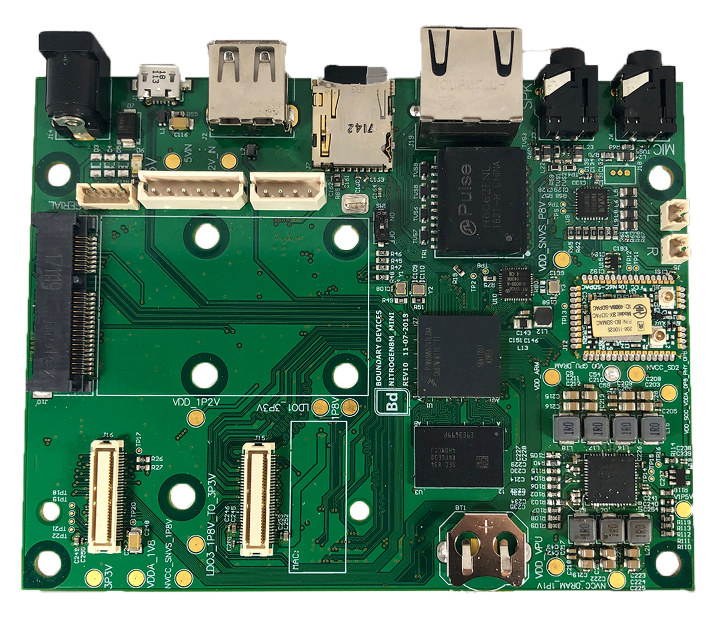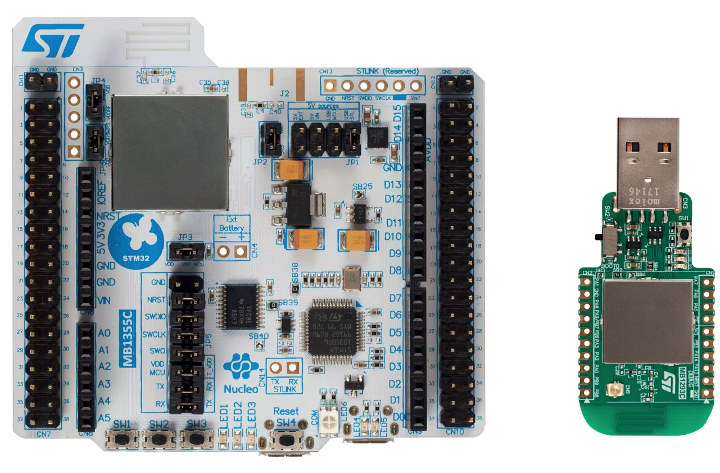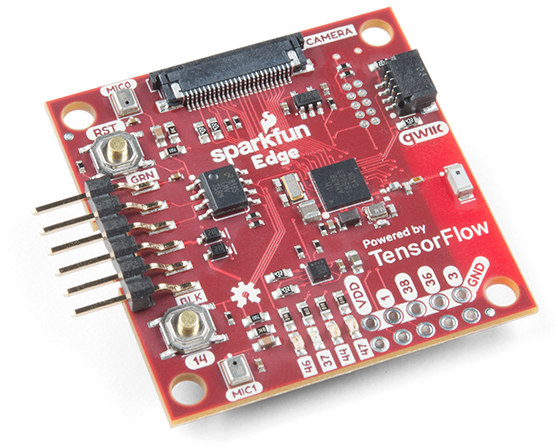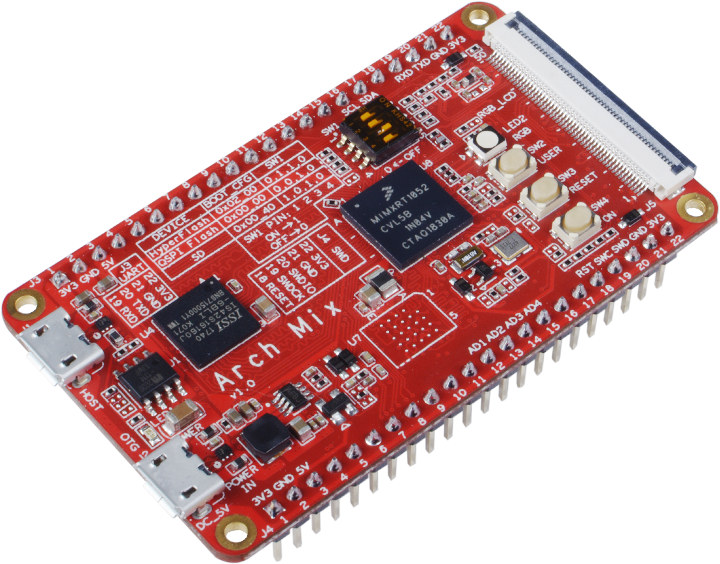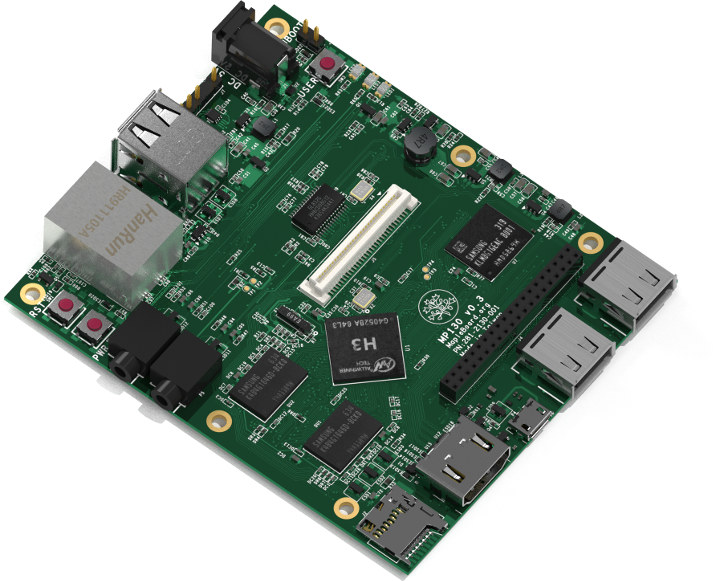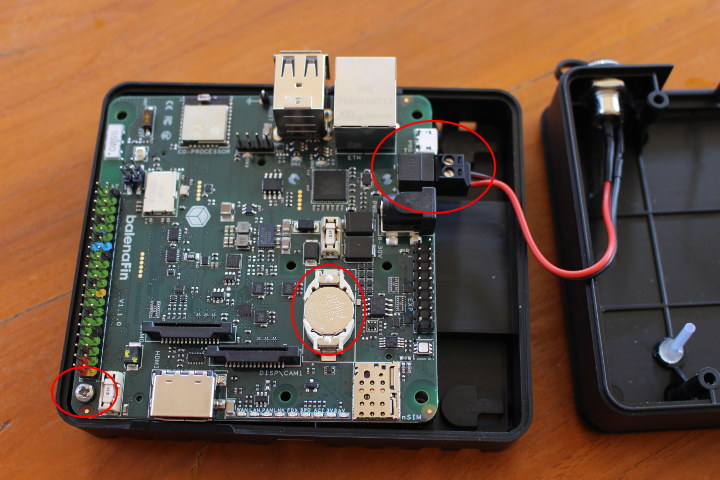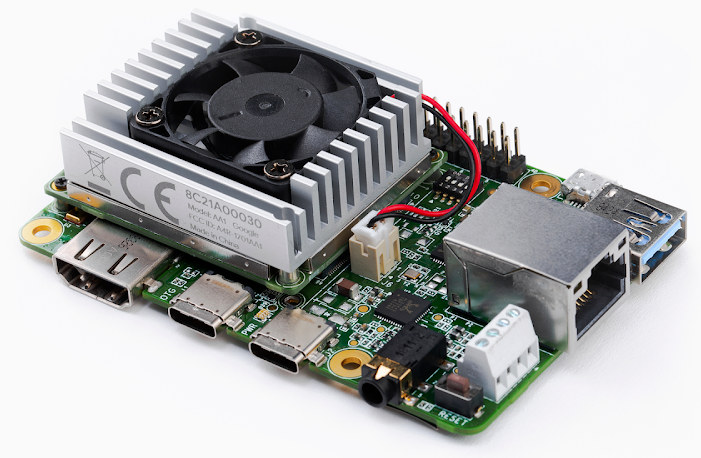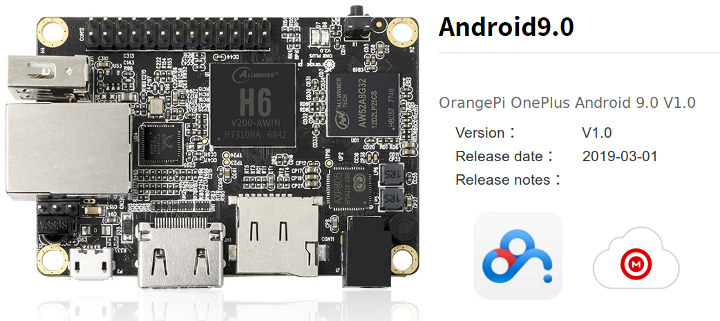Last month we write about Nitrogen8M_Mini, the First NXP i.MX8 8M Mini SBC, but at the time, it was not available for purchase just yet. Boundary Devices has now announced the official release of the board and is taking orders / pre-orders for $135 and up. Nitrogen8M_Mini SBC Two versions are being offered either with the board only, or as part of a devkit with a 5V power supply, an 8GB microSD card with Linux OS, a battery, and serial console cable: Nit8MQ_Mini_2r8eWB with WiFi and Bluetooth, currently in stock, and sold for $155 (board only), or $175 (devkit) Nit8MQ_Mini_2r8e without wireless module, to ship in a few weeks, and sold for $135 (board only), or $155 (devkit) Nitrogen8M_Mini specifications: SoC – NXP i.MX 8M Mini with 4x Cortex A53 cores @ 1.5 to 2.0 GHz max, 1x Cortex-M4F real-time core, Vivante GCNanoUltra 3D GPU, Vivante GC320 2D GPU System […]
STMicro Launches STM32WB55 Bluetooth 5 and 802.15.4 MCU & Nucleo Pack
STMicro unveiled their first STM32 Wireless MCU family at Embedded World 2018 last year with STM32WB dual-core Cortex-M4/M0+ microcontroller equipped with Bluetooth 5 and 802.15.4 radios, but it was only this year at Embedded World 2019 that the company announced commercial availability of STM32WB55 family as well as the P-NUCLEO-WB55 development pack containing a classical Nucleo 64 board and a USB dongle. STMicro STM32WB55 Bluetooth 5 & 802.15.4 MCU Key features and specifications: Application Core – Arm Cortex-M4 CPU @ up to 64 MHz with FPU, adaptive real-time accelerator (ART Accelerator), MPU, 80 DMIPS and DSP instructions Memory – Up to 256 KB RAM, including 64 KB with hardware parity check, 20×32-bit Backup Register Storage Up to 1 MB Flash with sector protection (PCROP) against R/W operations for Bluetooth Low Energy and 802.15.4 SW stack Quad SPI memory interface with XIP Radio 2.4 GHz RF transceiver supporting Bluetooth 5 and […]
$15 Sparkfun Edge Board Supports Tensorflow Lite for Microcontrollers
The 2019 TensorFlow Dev Summit is now taking place, and we’ve already covered the launch of Google’s Coral Edge TPU dev board and USB accelerator supporting TensorFlow Lite, but there has been another interesting new development during the event: TensorFlow Lite now also supports microcontrollers (MCU), instead of the more powerful application processors. You can easily get started with Tensorflow Lite for MCU with SparkFun Edge development board powered by Ambiq Micro Apollo3 Blue Bluetooth MCU whose ultra-efficient Arm Cortex-M4F core can run TensorFlow Lite using only 6uA/MHz. SparkFun Edge specifications: MCU – Ambiq Micro Apollo3 Blue 32-bit Arm Cortex-M4F processor at 48MHz / 96MHz (TurboSPOT) with DMA, 1MB flash, 384 KB SRAM, 6uA/MHz power usage, Bluetooth support. Connectivity – Bluetooth LE 5 (on-chip) + Bluetooth antenna Camera – OV7670 camera connector Audio – 2x MEMS microphones with operational amplifier Sensor – STMicro LIS2DH12 3-axis accelerometer Expansion – Qwiic connector, […]
$30 Arch Mix Development Board Features NXP i.MX RT1052 Crossover Processor
NXP i.MX RT Arm Cortex-M7 crossover processors are supposed to fill the gap between microcontrollers and more powerful application processors thanks to real-time capabilities, and a higher CPU frequency. We’ve already covered several i.MX RT1050 series platforms including NXP’s own evaluation board and Forlinx OK1052-C development kit comprised of a carrier board and an i.MX RT1052 system-on-module. But if you’d like to experiment with NXP i.MX RT processor using a cheaper, smaller, and easier to purchase development platform, Seeed Studio has started to sell Arch Mix development board for $29.90 plus shipping. Arch Mix board specifications: SoC – NXP i.MX RT1052 Arm Cortex-M7 processor @ up to 528MHz System Memory – 32MB SDRAM Storage – Optional 64MB Hyperflash, 8MB QSPI flash, microSD card socket Display I/F – RGB LCD interface USB – 1x micro USB 2.0 host port, 1x USB OTG port for data and power Expansion Headers – 2x […]
MapleBoard MP130 Allwinner H3 Board Almost Follows 96Boards CE Extended Form Factor
There are so many Allwinner H3 SBCs or development boards that new ones are often uninteresting, but with the release of Linux 5.0, I discovered a new board that I had never heard of: MapleBoard MP130. The board is equipped with 1GB RAM, Fast Ethernet, four USB ports, and various I/O expansion headers. But the form factor looked familiar, and it seems compliant with 96Boards CE Extended, except for some reasons they decided to swap the low speed and high speed connectors, so I doubt the board is compatible with any of the 96Boards mezzanines. MapleBoard MP130 specifications: SoC – Allwinner H3 quad core Arm Cortex-A7 processor at up to 1.3GHz with Mali-400MP2 GPU System Memory – 1GB DDR3L 1600 MHz Storage – 8GB eMMC 4.41 flash, microSD slot Video Output – HDMI 1.4 output with HDCP1.2 Connectivity – 10/100Mbps Ethernet Audio 2-ch 92dB ADC, 2-ch 100dB DAC, I2S/PCM Interface, […]
balenaFin Developer Kit Review – Part 1: Unboxing and Assembly Instructions
Balena launched balenaFin 1.1 at the end of last month. The board is a professional carrier board for Raspberry Pi Compute Module 3 / 3+ Lite that includes support for variable voltage power input, optional PoE, industrial eMMC flash storage, a real-time Arm Cortex-M4 core via Artik-020 module, and more. Somehow a balenaFin 1.1 developer kit ended up in my home, and I’ll play with it in several weeks, but in the first part of the review, I’ll just check out the content of the package, and show how to assemble the kit. BalenaFin 1.1 Developer Kit Unboxing The local courier brought a largish balena Fin package. which contained a smaller balenaFin package, and the actual developer kit. Everything is nicely packaged in the box with the part related to power supply in a white box, a small opening for smaller accessories and Raspberry Pi Compute Module 3, as well […]
Google to Launch Edge TPU Powered Coral Development Board and USB Accelerator
Several low power neural network accelerators have been launched over the recent years in order to accelerator A.I. workloads such as object recognition, and speech processing. Recent announcements include USB devices such as Intel Neural Compute Stick 2 or Orange Pi AI Stick2801. I completely forgot about it, but Google also announced their own Edge TPU ML accelerator, development kit, and USB accelerator last summer. The good news is that Edge TPU powered Coral USB accelerator and Coral dev board and are going to launch in the next few days for respectively $74.99 and $149.99. Coral Development Board Coral dev board is comprised of a base board and SoM wit the following specifications: Edge TPU Module SoC – NXP i.MX 8M quad core Arm Cortex-A53 processor with Arm Cortex-M4F real-time core, GC7000 Lite 3D GPU ML accelerator – Google Edge TPU coprocessor delivering up to 4 TOPS System Memory – […]
Orange Pi Software Releases – Android 9.0 Firmware, Linux Source Code for RK3399 / MT6737
Shenzhen Xunlong Software is used to release many different variations of their Orange Pi boards, and more often than not they tend to launch their boards fairly early before the software is fully ready. Many of their boards get supported by the community thanks to Armbian, linux-sunxi, etc… but sometimes the company does release firmware or source code themselves, as they did in the last two days with Android 9.0 firmware for one of their Allwinner H6 board, and Linux source code for Orange Pi 4G-IoT and Orange Pi RK3399. Android 9.0 for Orange Pi One Plus Launched in 2017, Orange Pi One Plus was the very first Allwinner H6 SBC launched on the market, and supported Android 7.0 at the time. But following the release of Android 9.0 for Allwinner H6 TV boxes a few weeks ago, you can now also upgrade your Orange Pi One Plus to Android […]


